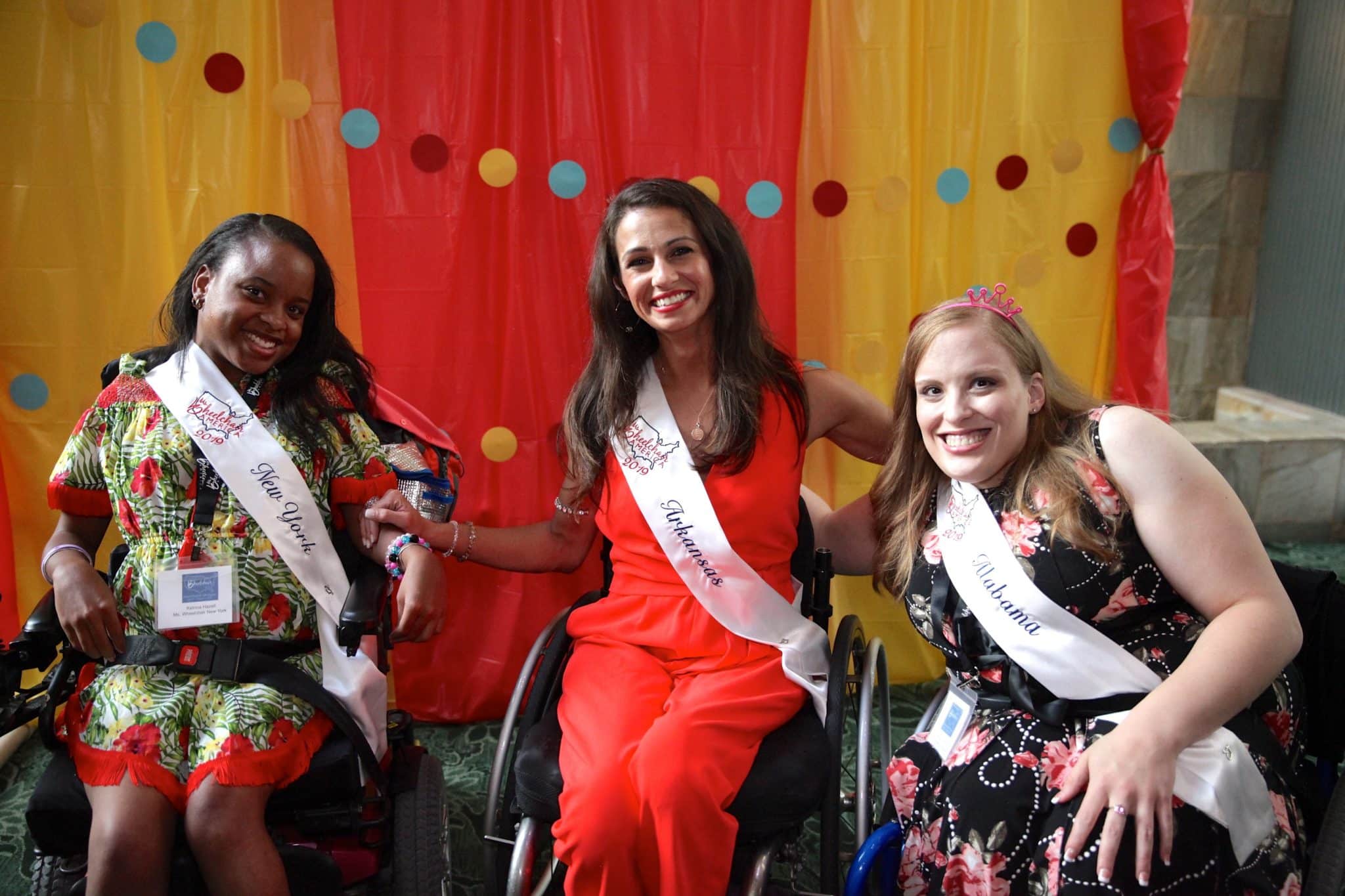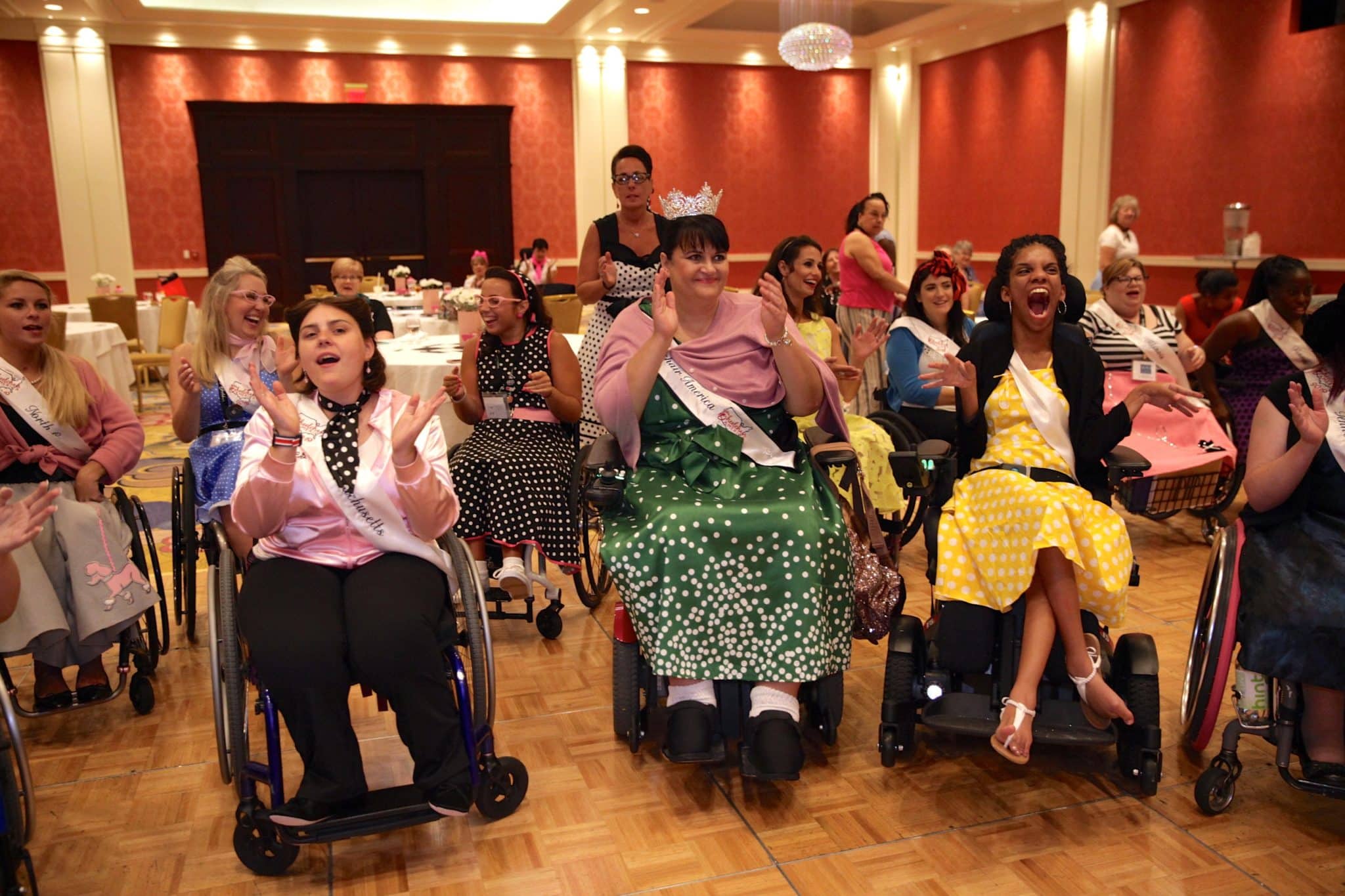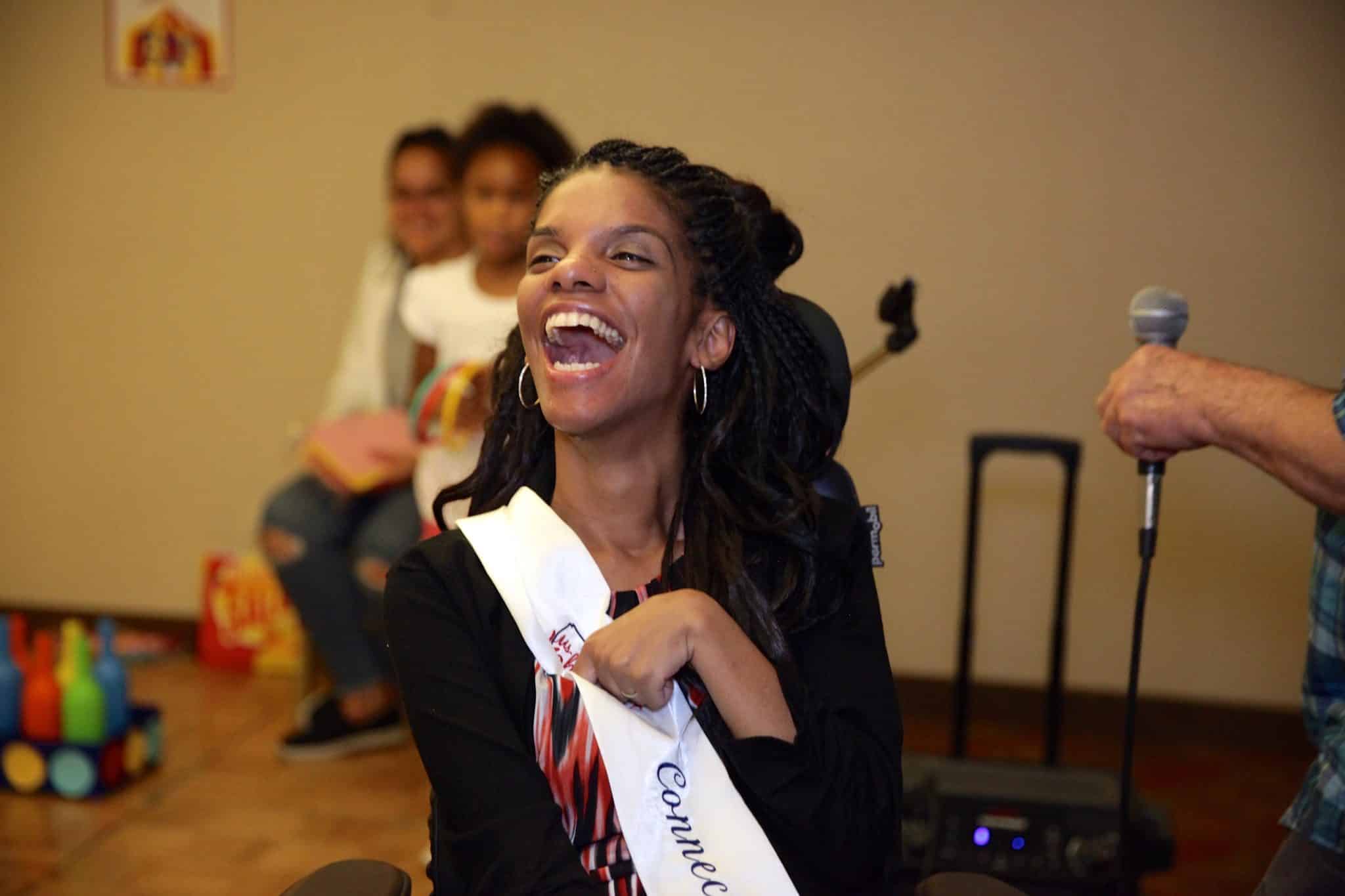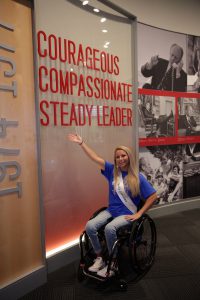When I came home from nationals, I gladly took over as the Michigan state coordinator. There was no way I was going to let the program die.
It was life-changing — absolutely life-changing.
It has made my 31 years in a wheelchair worth it.

My goal is to have all 50 states represented by our 50th anniversary. I've got three years to add 20 states. Our new hashtag is #50by50.
Social media has been a huge part of our efforts to grow the program. We like to get our contestants to network and reach out to people they know in unrepresented states. I do research and use social media to find various groups where I might be able to spark some interest. I reach out to disability organizations, centers for independent living, adaptive sports teams, and other groups to talk to them about the Ms. Wheelchair America program. We have other volunteers working on outreach as well. Everybody knows somebody, and now with social media, the world is getting a whole lot smaller.
We just held our 47th national competition in August. I'm really proud of our long legacy and strong history of making change. We've stayed true to the original mission which is to be an advocacy program.
It's never been about physical beauty.
We're very advocacy focused. There's no talent portion. We don't change costumes. We don't do dance routines. It's about breaking barriers and showing the general public that we are capable.

We call our program a competition rather than a pageant. There is a negative stigma that comes along with pageants, so as soon as you mention Ms. Wheelchair America, many women initially lose interest. But, although there is a somewhat negative stigma attached to the name, that gives us a reason to explain how our mission differs from beauty pageants. We are looking for women who have true beauty that blossoms from inside. We know we're strong, confident women, and we don't let our disabilities stop us.
If someone is interested in competing, the first step is to go to our website and contact us. We'll put them in touch with the coordinator from their state and let them know the key dates. The state competitions run from September 1 through the middle of March.
In the states that do not have programs, we have a process to become an independent delegate. After an independent delegate competes at the national level, her job is to go back to her state and build a program. We actually had five independent delegates this year. Now each of them will return to their states, hold a competition and send a new titleholder next year.
Karen Roy from Louisiana won this year so we will ask her to go to some of the states that do not have programs to try to draw some interest and bring awareness.

Every state is unique. In Michigan, I ask my titleholder to make at least two appearances per month. They can meet with the mayor or go to Lansing to a rally, for example. There are so many different avenues. When I was the Michigan titleholder, my platform was reaching children, so I went to a lot of schools to read books and answer questions. Our titleholder this year is focusing on architectural barriers. She's meeting a lot of legislators and working with Centers for Independent Living to advocate for change to ensure the environment is accessible. She will also make appearances at festivals and other annual events.
At nationals, there are three judging sessions. The contestants go in and five judges ask them questions on  a variety of topics. Topics vary widely and can be anything from "What's the biggest obstacle you see facing people with disabilities?" to "If you were a flower, what kind of flower would you be and why?" The judges want to get a sense of the overall person.
a variety of topics. Topics vary widely and can be anything from "What's the biggest obstacle you see facing people with disabilities?" to "If you were a flower, what kind of flower would you be and why?" The judges want to get a sense of the overall person.
The contestants also present the platform they’ve chosen which needs to relate to the world of disability in some way. It can be as broad as higher education or as narrow as people illegally parking in accessible spots. It really depends on each candidate's interests and where they see a barrier that they want to help educate people about or break down. The judges ask them about their plan of action, why their platform is important, and what difference they hope to make with it.
We want to get women into the program and feeling empowered.
Editor’s Note: Ms. Wheelchair America is a small nonprofit and welcomes donations and volunteers. To learn more, visit MsWheelchairAmerica.org or @MsWheelchairAmericaInc on Facebook.
Check out our articles featuring Ms. Wheelchair America 2018 Sheri Melander-Smith and 2016 titleholder Dr. Alette Coble-Temple.
Betsy Bailey has a diverse background including experience in marketing research at American Express, business operations and client relations with 601am, travel and culinary writing with VegDining, and playing volleyball professionally overseas.
Betsy is excited to get back into writing, something she’s adored since childhood, and thoroughly enjoys the process of getting to know her interviewees. On top of her work with Wheel:Life, she also teaches students learning English as a second language, speaks French fluently, and travels any chance she gets!